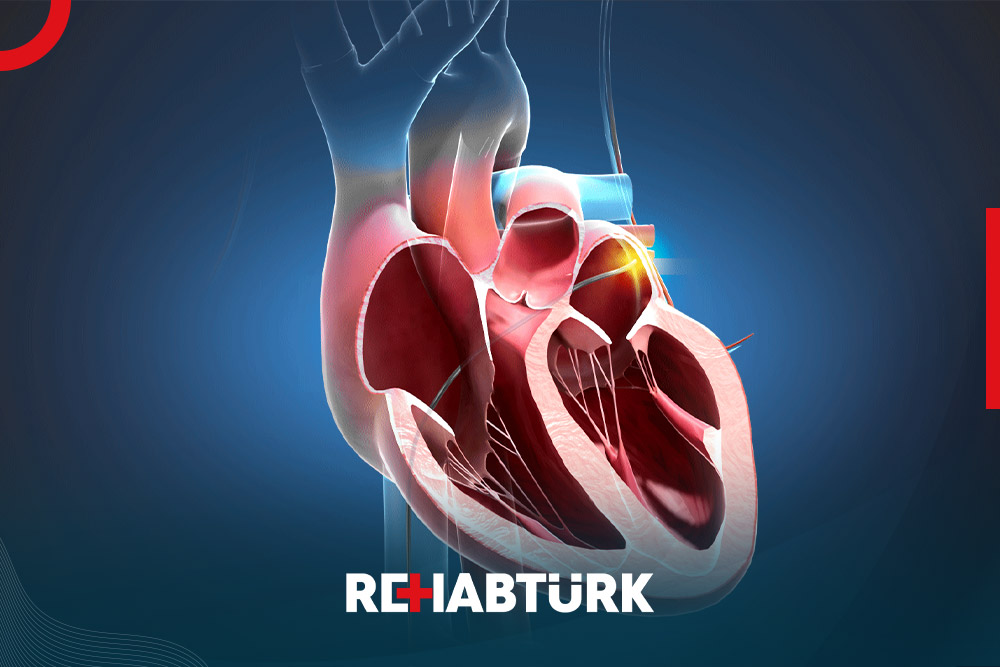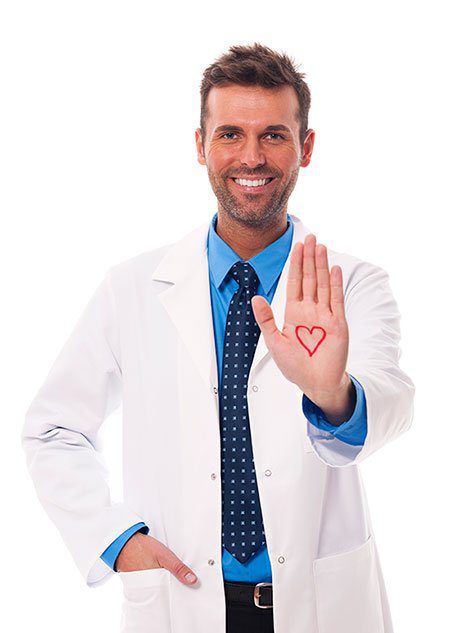Catheter ablation in Türkiye
Catheter cardiac ablation, also known as cardiac ablation or radiofrequency ablation, directs a tube into the heart to destroy small areas of tissue that may be causing an abnormal heartbeat.
Not everyone with an arrhythmia needs catheter ablation. It’s usually recommended for people with irregular heart rhythms that can’t be controlled with medication or with certain types of arrhythmias from the upper chambers of the heart, called the atria. Catheter ablation is also sometimes recommended for people with arrhythmias that begin in the heart’s lower chambers, known as the ventricles.
How should I prepare for cardiac catheter ablation?

Before the procedure, your doctor may ask you to do some tests. Your doctor will tell you more about your heart and general health. May include:
- blood test
- Chest x-ray
- CT scan or MRI of your chest
- Echocardiogram
You should not eat or drink anything after midnight the day before the ablation. Food or drinks in your stomach may cause a bad reaction to the anesthesia during the procedure. For example, you might vomit, and it could get into your lungs.
What to expect: step-by-step catheter ablation
- Catheter ablation can take between two and four hours to complete. The procedure is performed in the electrophysiology laboratory where you will be closely monitored.
- A nurse will weigh you, give you a physical exam, review your medical history, ask you about all of the medications you take, and review the results of your blood test for blood-thinning medication levels.
- The anesthesiologist will also examine you, ask about your medical history, and talk with you about your anesthesia for the ablation.
- You will be given anesthesia to hold you during the ablation. It is not a painful procedure.
- You’ll lie on a surgical table for the catheter ablation procedure.
- There will be a nurse (ECG) attached to the electrodes on your back and chest. Wires attached to the electrodes will send signals to computers to guide your doctor during the ablation.
- If your skin has hair, a nurse may shave a small area where the catheter is inserted. It usually enters through a blood vessel in your groin, or sometimes in your neck.
- Once your doctor places the catheter in your blood vessels, he or she will guide it into your heart. He’ll use ultrasound to see where it’s going.
- Your doctor will use the end of the catheter to break open spots in your heart that are causing trouble. After that, the electrical current in the heart should be fixed and the blood should flow normally.
- Doctors can use these energy sources to create scar tissue:
- radio frequency waves
- microwave oven
- laser
- Cryothermy
What happens after catheter ablation?
You may have to stay in the hospital overnight after the mastectomy so that your doctor and nurses can monitor you as you recover. You will likely rest in bed for 6 to 8 hours after the procedure. Some people leave the hospital the same day. Most people go home the next morning.
Your doctor will tell you how well the procedure worked and how well it needs to work.
Recovery after a procedure after cardiac catheter ablation in Türkiye
After returning home:
- You may feel pain, tiredness, or some discomfort in your chest for a few days.
- You may need to sleep more than usual for a few days to recover.
- It may take several weeks for the work done during the procedure to turn into tissue.
- You may not have a normal heartbeat until scar tissue has formed. The arrhythmia may seem the same or worse until then.
- It is common that you will need to take blood thinners for 3 months after catheter ablation.
- You’ll likely need antacids or anti-inflammatory medications as well.
- Sometimes the procedure must be repeated to work. Your doctor will check your heart rhythm in the days and weeks after the procedure to see if this is something you will need.
Tips for recovery after surgery
Do not lift, push or pull anything weighing more than 10 pounds for about a week after the removal.
- Avoid intense exercise for 3 weeks after the operation as well.
- Make sure your surgical wounds remain clean and dry until they heal.
- You can take a shower, but for the first five days do not use very hot water or soak in the shower. Gently pat dry near the wound.
- Do not use lotions or creams there.
- If you notice any signs of infection at the wound sites, such as fever, redness, heat, or swelling, call your doctor.
What is the catheter ablation procedure?
Your doctor should explain the risks to you. But common risks include:
- Bleeding, infection, or pain where the catheter was inserted into your skin
- blood clots
- Accidental damage to body tissues
- Accidental damage to your heart
How successful is cardiac catheter ablation in Türkiye?
Catheter ablation eliminates arrhythmias such as atrial fibrillation , atrial flutter and supraventricular tachycardia (SVT) for most people. But it can return in a few years, especially if you:
- Older
- You have another heart condition
- You suffer from high blood pressure
- You have a history of AFib ( atrial fibrillation ) that is difficult to treat
If fibrillation returns to your heart, your doctor may be able to treat it with medication. Or you may need a second procedure. If your problems persist, your doctor may implant a pacemaker to control your heart’s electrical signals.
Catheter ablation in Türkiye
Many patients come to Türkiye for Cardiac Catheter Ablation in Türkiye.
REHABTÜRK HEALTHCARE PROVIDER NETWORK treatment services to patients in addition to transportation, accommodation and full trip coordination services.
Cardiac ablation in Türkiye requires an average of 8 nights of stay in Istanbul.
Patients receive intensive post-operative care to check their condition and satisfaction after a cardiac catheter ablation in Türkiye. In addition, our patient support team is available 24/7.
How can I book a catheter ablation surgery in Türkiye?

- Free medical support on the phone: You will have a dedicated representative for your health condition who is always ready to answer your questions.
- Free consultation with a specialist doctor: Your medical representative will consult with a number of doctors and hospitals to find the best possible treatments.
- Free travel visa arrangement: We will contact the embassy in your country to assist you in obtaining a visa to visit Türkiye.
- Free itinerary planning: We will create a schedule for your medical trip to Türkiye.
- Free translation of documents and reports: We will translate medical documents and reports into Turkish on your behalf.
- Free support and monitoring: We will monitor the stages of treatment and be by your side every step of the way.
- Free instant translation: We will be with you during the treatment stages to provide translation between you and the medical team.
- Free accommodation and transportation coordination: We will book accommodation for you and your companions in Türkiye, along with transportation services.
Contact REHABTÜRK doctors for more information about the procedure and to evaluate your medical condition.
